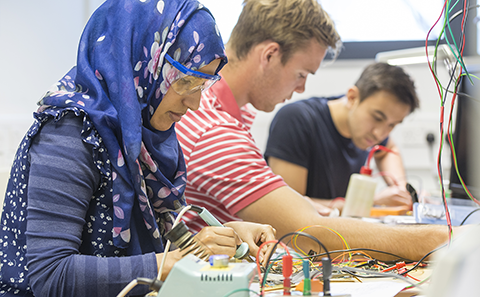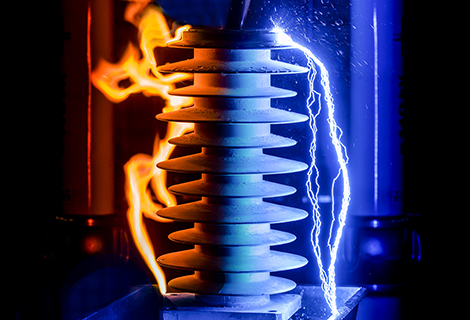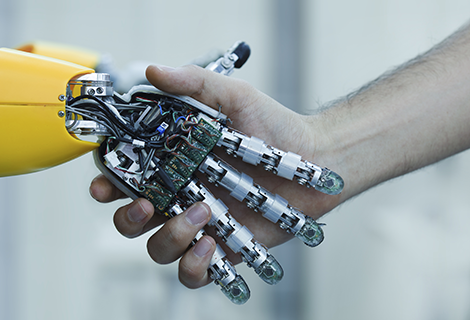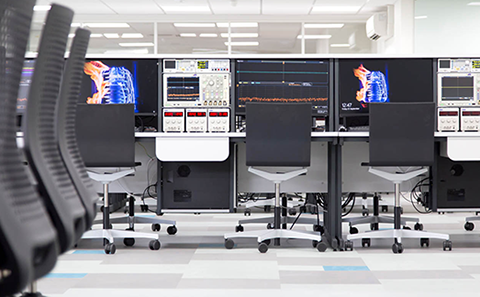
Try before you apply
If you love maths, technology or science, try our week-long summer school in electronics and computer science.
The ECS Mechatronic Engineering degree can be studied at both three-year bachelors and four-year undergraduate masters levels. Both are available with a Foundation Year.
Mechatronic Engineering, formerly known as electromechanical engineering, is a mixture of mechanical engineering and electrical engineering, and it also entails some computer programming and control engineering. It is concerned with systems ranging from micro-machines to powerful industrial robots, all relying on mechanical elements, electrical power, sensing and control to produce a useful device.
The programmes have been specifically designed to meet the increasing demand from industry for engineers with cross-disciplinary skills, particularly in the fields of robotics, flexible manufacturing, mechatronic power systems and electrical power transmission-distribution systems. It provides understanding of both electrical-electronics and mechanical principles, and the design problems associated with combining electrical and mechanical components into electromechanical devices or systems.
Our modules use a variety of innovative teaching methods and assessment, including coursework, groupwork and exams. Here are some examples of what you'll be able to do.

We have an outstanding electrical engineering teaching laboratory and computing facilities as well as a world-leading high-voltage laboratory.
Find out more about the High Voltage Lab
University of Southampton is a member of the IET Power Academy with opportunities for generous scholarships.
Find out more about Power Academy scholarships
If you love maths, technology or science, try our week-long summer school in electronics and computer science.

A*AA for MEng and AAA for BEng, including mathematics and physics

Electrical and electronic engineering students benefit from bespoke high tech benches with built in test equipment and dual high definition monitors.
The atmosphere in ECS is always collaborative: if some had a problem, within a minute a group of five or six would have gathered round to discuss different solutions.